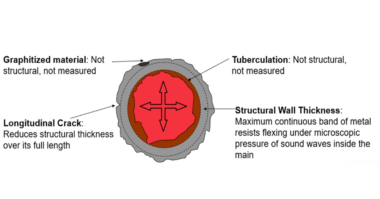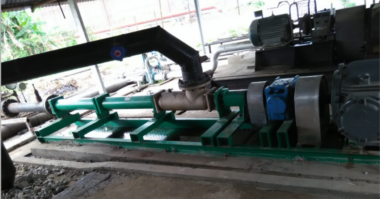We often review our maintenance budgets and try to find ways to lower it and other ways to cuts costs. Many plants think that by reducing maintenance staff is an easy way to cut dollars. But many times with less staff and already being in a reactive mode, more PM’s will be missed and things get worse. Many times these quick fixes like not buying spare parts to keep the budget in line lead to more failures and eventually higher costs. That’s one of the big problems with publically owned company and new CEO wants to make things look better short term. But if the future and real savings is what you are after here is some good information to consider.
There are four kinds of maintenance we can do at our plants:
- Reactive
- Preventive
- Predictive
- Proactive
Reactive Maintenance:
If we are reactive it means we are making repairs and doing corrective maintenance tasks based on information we are receiving from the operators or maintenance while they are performing their duties or after the machine is already failed and not producing. In this mode we find the spare parts, make a quick repair, and get the machine up and operating. We probably don’t do the precision alignment, we may leave the oil that was in the stored unit, and we may not use the exact correct part. But the plant is up and running.
Any work that is not planned for 2-3 days ahead can be considered reactive work. I am at plants regularly that are doing 80-90% of their work in this reactive area.
The cost to the plant being at this high reactive percent is $17.00 to $18.00 per HP/year.
Preventive Maintenance:
Preventive Maintenance is the scheduled replacement, inspection, adjustment, lubricating of equipment components based on some form of data such as life cycles, or known failure rates. It is a fact that if we perform a lubrication task at the correct frequency with the correct type and amount of clean lubricant we can add many life cycles to the life of the component. If we make adjustments and perform other tasks many equipment components can last multiple life cycles longer and sometimes forever. If we do replacements of components before they fail and do them on scheduled down times and not emergency downtimes we can have longer run times, less quality issues and many other benefits.
The cost of a good preventative maintenance program where PM’s have criticality attached or the PM’s are never missed is around $12.00 to $13.00 per HP/year.
Predictive Maintenance:
A good predictive maintenance program based on sound judgments of what technology to use and what failure modes you are trying to predict can make you more reliable. By being able to predict failures months before they occur can make your planning and scheduling much more efficient. Work task become more effective and time it takes to perform maintenance replacement and change out much less. A good predictive program also has these benefits:
ü Reduces collateral damage
ü Maintenance work is only performed when needed
ü Time to plan the work (35% more efficient)
ü Time to do the correct maintenance
ü Time to have correct parts (no expediting)
ü Time to do precision maintenance
ü Less spare parts – 30% less
ü More efficient use of maintenance time
ü Less Emergency Downtime
ü Repair work can extend equipment life
ü Safer work conditions
Predictive technologies must be selected correctly using processes such as RCM, past failure data, MTBF, and industry knowledge. A good predictive technology process that is developed and used effectively can bring your maintenance costs to $10.00 to $11.00 per HP/year.
Proactive Maintenance:
Proactive maintenance are processes that are used to make equipment that is functioning as is should last for many more life cycles and sometimes if done correctly nearly forever. Processes such as the ones listed below can give the components longer life and reduce wear to very low or near zero levels.
Lubrication Excellence (removing anything in the lube that can cause wear)
Precision Alignment
Precision balance on every rotating component
RCM (Reliability Centered Maintenance)
TPM (Total Production Maintenance)
TPO (Total Productive Operations) (one of my terms and training)
Planning/Scheduling
Equipment Criticality
Performance Measures
Training Programs
CMMS Systems
These are just some of the Proactive processes that can help make your equipment last forever. Being trained and using parts of these tools correctly will make a huge difference in every aspect of maintenance and operations. Being Proactive can lower ours costs to $6.00 to $8.00 dollars per HP/year.
Let’s stop following the old way of cutting costs for short term gains and look at what we can really do by investing in training and people and go for the long term gains. Training and information is available by contacting Charli or Terry Harris, CMRP




Comments